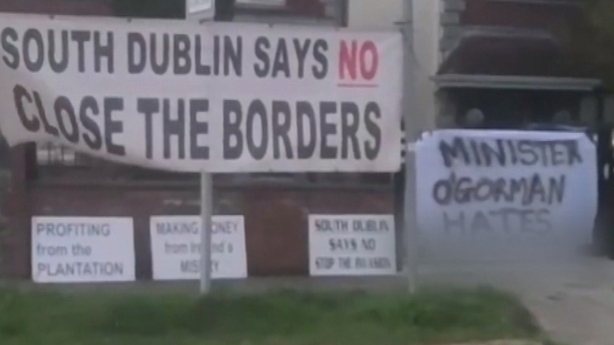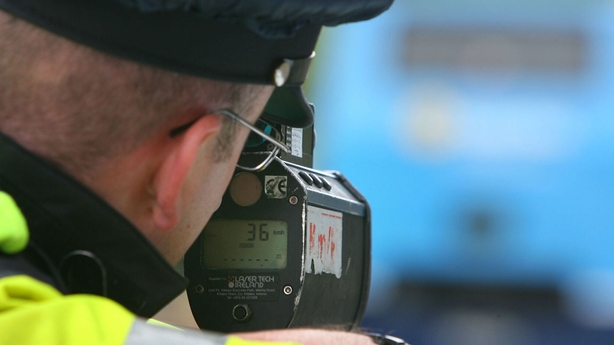Gardaí still do not have the proper training or equipment to deal with riot situations like the one in Dublin last November, according to the the Garda Representative Association.
At its conference in Westport, Co Mayo the body representing rank-and-file gardaí passed motions calling on Garda Commissioner Drew Harris to ensure that every garda is trained, has a helmet and proper foot protection.
An Garda Síochána said that over 1,000 gardaí have been trained in public order and more training courses are starting next week.
Gardaí who were on the streets during the riots in Dublin last November described to the conference the chaos and lack of communication, protection and equipment that night.
We need your consent to load this rte-player contentWe use rte-player to manage extra content that can set cookies on your device and collect data about your activity. Please review their details and accept them to load the content.Manage Preferences
Garda John Joe O'Connell said he and 15 or 20 of his colleagues decided to come to Dublin from Kildare to help their colleagues, as did gardaí from all over the country.
He has been a guard since 1996 and therefore had been issued with a helmet, but he said junior colleagues did not while bottles and other missiles were thrown at them.
Garda Karl O’Reilly said a colleague lost a toe because he did not have proper boots and this issue still has not been resolved.

Meanwhile, gardaí have also said images posted on social media about the protest at Minister for Integration Roderic O'Gorman's home last Friday were edited for disinformation.
Gardaí who responded to the incident at Mr O'Gorman’s home described the mobile phone footage posted online as "disinformation".
Garda Mark Ferris said the footage was edited to make it look like the gardaí watched the placards and banners being placed on the gates when this was not what happened.
He said they were already there when the gardaí arrived and when they directed the group to remove them, they did.
One said: "We got what we wanted."

Changes to roads policing a PR exercise - GRA
The GRA also described the announcement that all uniform gardaí will do 30 minutes of road policing on duty as a public relations exercise.
Commissioner Harris introduced the new initiative earlier this month based on international research and also promised to increase the number of gardaí in Road Policing Units.
However, the GRA said it is creating unnecessary computer work for gardaí who have to gather the statistics.
A total of 64 people have died on the roads so far this year, 13 more than for the same period last year.
Because of the high number of fatalities and the low number of gardaí assigned to dedicated road policing, Mr Harris directed that every uniformed garda carry out 30 minutes of road policing every day.
Garda headquarters has said this was based on international research and a Swedish model of 20 minutes a day which it said contributed to a significant reduction in road deaths there.
The Garda Commissioner has also promised an additional 150 gardaí for road policing over the next two years.
Read more: Increase in assaults on gardaí and politicians, says GRA
James Morrisroe, who is stationed in Co Cavan, said it is a waste of time and resources as gardaí now have to log on to a computer even if there were no incidents or detections to report, in what he said was a statistical exercise.
Recruitment and retention is also a major issue at the GRA conference.
Garda headquarters said the resignation rate in An Garda Síochána is 1% compared to an average of 10% in international police services and that 120 extensions of service have been granted by garda management in the last two years.
The Policing Authority’s report based on interviews with gardaí found that "in the main, the general view was not one of concern that An Garda Síochána is facing a retention 'crisis’ or an ‘exodus’ of good people" and that "frustration rather than low morale would perhaps best describe the sentiments expressed".
However, Garda Nessa Durkan, who has been stationed in Co Louth for 26 years and trains young gardaí, said they are leaving because of a lack of resources and equipment, a feeling they are not being supported and a belief that they do not have the autonomy to make decisions.
In response to criticism of the garda discipline system, garda headquarters said that 96 gardaí are currently suspended which is down from 115 at end of 2023.
It also said there had been no suspensions for on-duty activity so far this year and that 14 suspensions were lifted in 2024.







